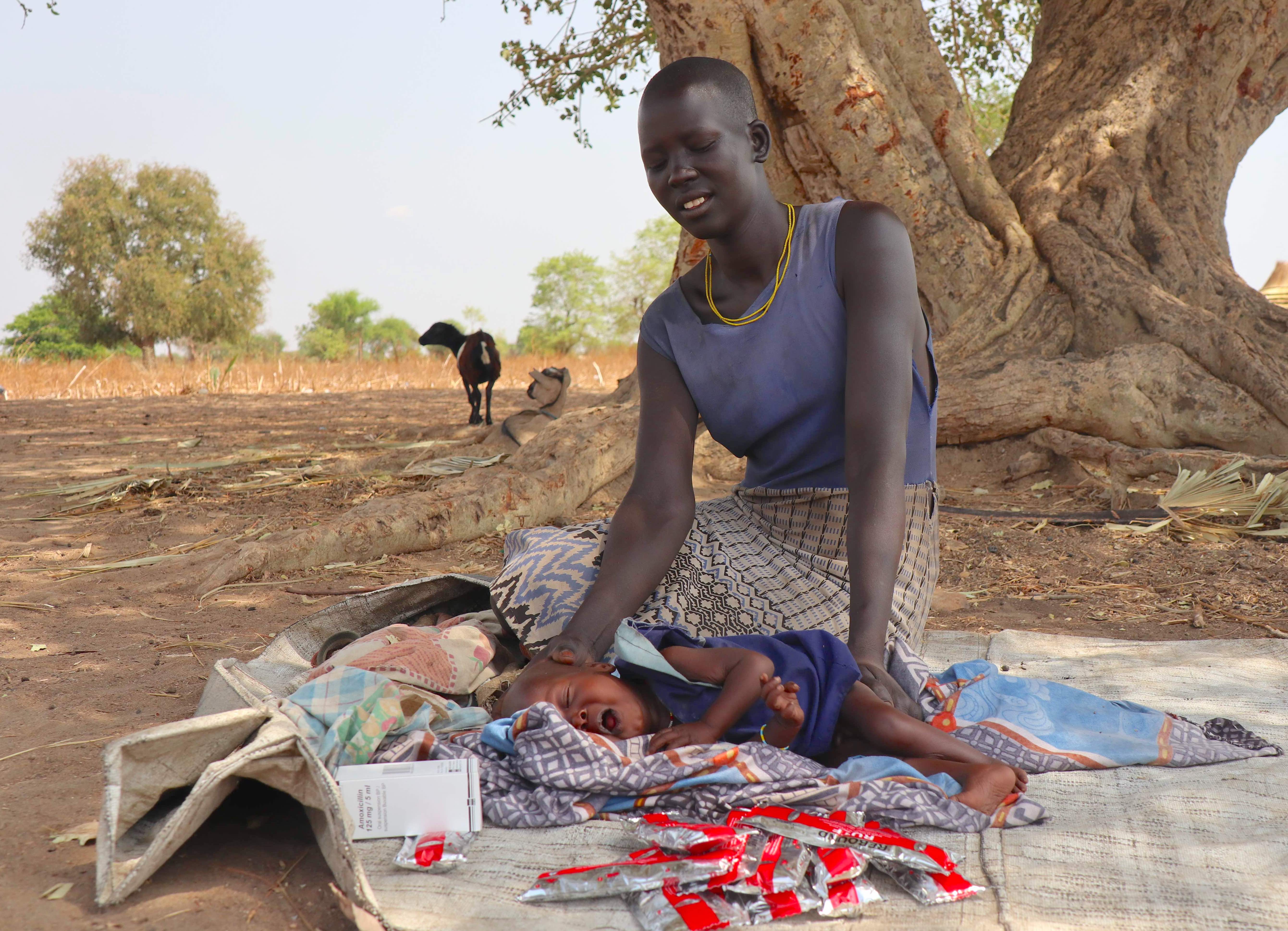Communal clashes and displacement worsen deepening hunger crisis in South Sudan’s vulnerable areas

“The conflict took us by surprise. We fled quickly but the only thing I was able to take with us was my savings from the sale of my harvested farm products. I was with my two children and we followed people for four hours until we got to Warrap town”, 30-year old Ayom says.
Ayom, a widow and mother of three, left her village in South Sudan’s Tonj North County in December 2021 due to communal clashes caused by cattle raids. She adds, “Even after my husband’s death in 2018, my children were always well-fed because we planted enough food from our farm.”

Unfortunately, her 7-months old son Manyiel developed a swelling on his neck. She further shares, “The money I planned for our fresh start were spent for Manyiel’s treatment. For three months now, my children and I sleep in an open dwelling because we cannot afford to build a proper place to live.”
Ayom believed that the swelling and other afflictions being suffered by Manyiel are caused by the cold weather at night and malnutrition because she does not have enough milk to feed him. She lamented the situation that they have which is a far cry from what they enjoyed before they got displaced.

She watched her son lose weight and had no idea what was wrong with him after the doctors declared him well. She was referred at World Vision’s nutrition center in Warrap Primary Health Care Center by the women in the community.
Manyiel was confirmed with severe acute malnutrition. “I have no idea that the solution to my child’s recovery was at the center which was close by and services are free”, she says.
We used to receive about 10 cases a week but now over 10 a day, or at least 70 cases a week. This is due to food insecurity resulting from communal conflict driving people to leave their homes and farms.
The nutrition center is supported by South Sudan Humanitarian Fund (SSHF) to provide support to women and children suffering from severe and moderate acute malnutrition.
Martin Mayiep World Vision’s community nutrition worker shares, “There is considerable increase in cases of malnutrition now compared to past last years. We used to receive about 10 cases a week but now over 10 in a day, or at least 70 cases a week. This is due to food insecurity resulting from communal conflict driving people to leave their homes and farms.”

“My son regained his appetite and actively consumes the ready-to-use therapeutic food. I believe he will recover soon based on the experience of mothers at the facility about their children”, adds Ayom.
“You cannot hear any laughter and ululation of joy from women and children in our land, as we did a long time ago. People are suffering beyond no doubt in our country. I am appealing to the government to improve security, and for donors to keep supporting children and women suffering from hunger”, she appeals.

Hailu Badhane, World Vision’s Warrap Zonal Program Manager says, “The ongoing clashes in Greater Tonj County of Warrap State has displaced thousands of families, disrupted their livelihood, and drove them to food insecurity and diseases. Children, lactating and pregnant mothers, are the most affected.”
“There is a great need for long-term intervention through peace-building and resilience development while at the same time scaling up the emergency response efforts to alleviate the suffering of the affected families”, adds Badhane.
The recent Integrated Food Security Phase Classification has declared Warrap State, where Ayom's village is located, is among the most food insecure states and at least 50 percent of its population is facing a crisis or worst acute food insecurity.

Story and photos by Scovia Faida Charles Duku, Communications Coordinator